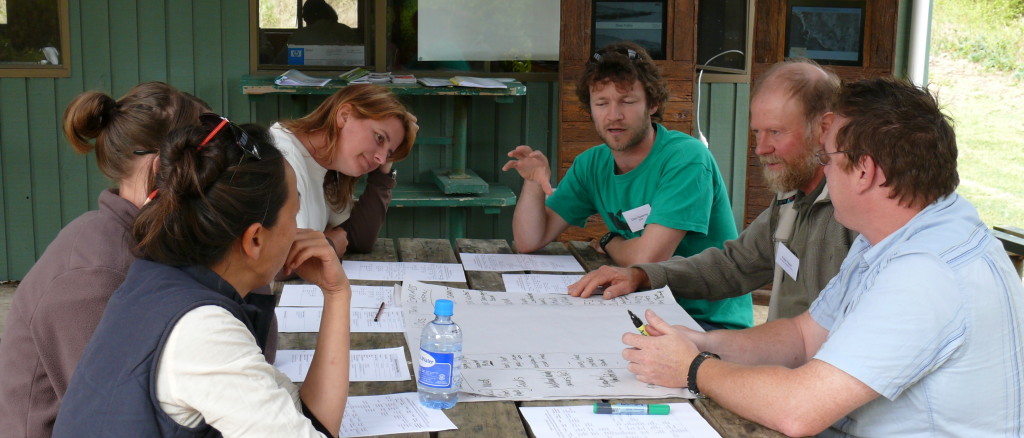This Module of the National NRM Impacts and Adaptation project introduces pillars and principles for shared learning with the aim of inspiring others to use more deliberate techniques to bring together diverse sources of knowledge and perspectives for more effective innovation.
AdaptNRM aimed to translate, tailor, and deliver climate change impacts and adaptation information that was deeply relevant for all of Australia’s regional NRM groups. It was therefore important for the project team to share the learning with NRM planners to gain a good understanding of how the science information should be best prepared and delivered to meet their diverse needs.
The Shared Learning module consists of two components:
- Pages in this website, featuring the key messages from Shared Learning, drawn from AdaptNRM’s journey to engagement, and
- Sharing the Learning, the AdaptNRM Shared Learning Guide, which will be released in PDF form early in 2017.
The Shared Learning pages are structured as:
Introduction to Shared Learning provides a brief introduction to the concept – what it means and why it’s important.
Pillars of Shared Learning introduces the two underlying pillars of shared learning in AdaptNRM: Democratisation of Knowledge and Peer Learning.
The Principles of Shared Learning describes 10 principles that AdaptNRM used to achieve greater shared learning between and among NRM planners, biophysical scientists, and social scientists.
The Shared Learning campus provides further information on background scientific concepts, additional resources, and links to case studies.
Learning about Learning, provides critical reflection on the pillars and principles in practice, largely based on insights from Monitoring and Evaluation activities. The content of this section will be finalised with the conclusion of our M&E activities.

Community forum; Credit: South East NRM
Community forum; Credit: South East NRM
The Personality Portfolio is a supplement to the Shared Learning Module. This document provides six ‘personality profiles’ for regional NRM groups, to help facilitate collaboration among different NRM groups to capitalise on their strengths, and to support diverse information delivery by researchers and government. These profiles were derived from a survey of NRM groups investigating their differing approaches to information use, planning, stakeholder interactions, risk management and decision-making.
